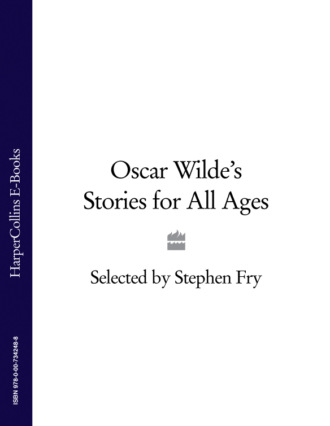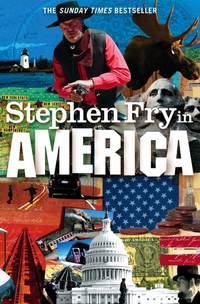
Полная версия
Oscar Wilde’s Stories for All Ages

Oscar Wilde’s Stories for All Ages
Stephen Fry
presents
Illustrated by Nicole Stewart

Table of Contents
Cover Page
Title Page
INTRODUCTION
THE YOUNG KING
Introduction
THE YOUNG KING
THE SELFISH GIANT
Introduction
THE SELFISH GIANT
THE REMARKABLE ROCKET
Introduction
THE REMARKABLE ROCKET
THE NIGHTINGALE AND THE ROSE
Introduction
THE NIGHTINGALE AND THE ROSE
THE HAPPY PRINCE
Introduction
THE HAPPY PRINCE
THE DEVOTED FRIEND
Introduction
THE DEVOTED FRIEND
THE STAR-CHILD
Introduction
THE STAR-CHILD
THE FISHERMAN AND HIS SOUL
Introduction
THE FISHERMAN AND HIS SOUL
THE MODEL MILLIONAIRE
Introduction
THE MODEL MILLIONAIRE
THE BIRTHDAY OF THE INFANTA
Introduction
THE BIRTHDAY OF THE INFANTA
THE CANTERVILLE GHOST
Introduction
CHAPTER 1
CHAPTER 2
CHAPTER 3
CHAPTER 4
CHAPTER 5
CHAPTER 6
CHAPTER 7
Copyright
About the Publisher
INTRODUCTION
by Stephen Fry
Eighteen eighty-eight was a happy period in Oscar Wilde’s life that saw him comfortably established in Tite Street, Chelsea with Constance, his young, beautiful, clever and loving wife. He enjoyed a reputation as a literary cub who had realised his early Oxford promise and was rapidly growing into a fully maned literary lion. The couple’s two sons, Cyril and Vyvyan, were only three and two years old respectively at this time, so unless they were even more prodigiously gifted than their father it seems unlikely that they had yet read or had read to them the tales collected in The Happy Prince and Other Stories, which came out that very year.
In these stories, and in The House of Pomegranates, which was published three years later, Wilde’s gifts as story-teller, prose poet, wit and moralist came fully to the fore. For some readers, myself included, he never quite matched that particular combination so well in any other genre.
To the fairytales drawn from those two books have been added The Model Millionaire and The Canterville Ghost, which were originally published in Lord Arthur Savile’s Crime and Other Stories but which we felt would augment this edition well.
Wilde’s children’s stories are simple enough to be understood and enjoyed by even the oldest adults. I have provided small separate introductions for each, but first a word about the author.
Oscar Fingal O’Flahertie Wills Wilde (1854—1900) continues to be a figure for all ages. Indeed, the more time that passes, the more he seems new and fit for us, or at least for some amongst us. Now that they no longer believe in the power of popular music or revolutionary politics to change the world it is to artists and intellectuals that idealistic and imaginative students will turn. Posters of Wilde and Einstein are more likely to be found on the bedroom walls of the young these days than images of Jim Morrison or Che Guevara, who offered so reliable a decorative imperative for my generation.
Wilde comes down to us, clad in velvet and silk, the Duke of Dandies, the Prince of Bohemia, the Patron Saint of sexual outcasts and radical outsiders everywhere. His good nature as much as his good wit retain the power to scorch the bourgeois, the philistine and the unfriendly in our world. That his life ended with such bitter suffering, betrayal and pain, followed by so complete a resurrection in reputation and influence serves to reinforce that messianic image he retains. It is interesting to me that so many of the early stories presented here, created at a time of riches, renown and contentment, seem so strongly to prefigure the themes of sacrifice, injustice, cruelty and suffering with which we associate the final chapter of his extraordinary life. None of which ought to lead you to believe that the fairytales are gloomy affairs. Far from it. Nor should one believe that a dandy is, of necessity, a person of no importance, no gravitas, no high purpose. We have more to learn from dandies and dandyism than from most scholars and moral scientists. Sadly, they are a species in decline today. I wish I had been cut out to be one myself, but I don’t have the courage, the instinct, the seriousness of mind, elegance of leg or cut of shoulder. Fortunately there are figures like the artist Sebastian Horsley who continue to fly the silken flag, but it seems to me an indication of our age that Wilde is still radically misunderstood by the middle-brow, the middle-class and the middle-aged who are so apt to think being funny betokens a lack of seriousness, whereas of course only humourlessness betokens that.
But enough. There are plenty of biographies of Wilde. There was even a most excellent film made of his life in 1997, which I could not recommend more highly if I were involved in it myself. There are plenty of editions of Wilde’s work too, you might think, including every story collected here. What can justify yet another? The answer to that is Nicole Stewart. Nicole is an Australian artist I have come to know over the years since she nobly consented to design my website www.stephenfry.com way back in July 1999. She has continued to work on it, investing it with a quality, colour and glory way beyond its merits. She and Andrew Sampson, the website’s producer and my partner in all things online and digital, came up with this idea after I had recorded some of these stories in audiobook form, and what you now hold in your hands is the result.
I can think of no higher praise for Nicole’s illustrations here than to say (fully aware that it is the height of impudence) that Oscar would have adored them.
Stephen Fry
www.stephenfry.com/wilde
Introduction
An often overlooked characteristic of Oscar Wilde is his interest in social politics and the poor. He understood all too well that only the well-off imagine that poverty can be described as noble or dignified. His essay The Soul of Man Under Socialism remains one of his very finest works and many of the ideas in it find fabulous (in the literal as well as the usual sense of that word) realisation in this perfect fairytale, The Young King.
When you begin to read it you might think that this is a very Oscar Wilde story indeed. A beautiful youth surrounded by beautiful objects and exquisitely wrought works of art ornately described in exquisitely wrought prose. How very Oscar. But the story is really a moral fable that teaches us to understand where beauty grows. How acutely contemporary its concerns seem to us today, when the manufacture of every designer shirt and the sourcing of every banana and the provenance of every ounce of coffee make us quiver with self-conscious guilt and wobble with liberal shame. I don’t think we can claim that Wilde invented the idea of ethical purchasing, but he certainly gave it perfect expression.
I suppose the less faithful amongst us will find the ending a little too sentimentally Victorian for our tastes, but I think its startling pictorial nature excuses the religiosity. It is a simple enough moral: true beauty comes from the spirit; surface beauty can be horribly ugly. I hold it true today, that until you have sat in the lobby of a five-star hotel and watched the rich people with their Vuitton luggage, their Graff jewels and their Hermès blouses you have never seen true ugliness. It wasn’t Wilde who said ‘If you want to know what God thinks of money, just look at the kind of people he gives it to’, but it is a point of view he understood.
There is real dialectic in this tale, however, real argument. It would have been easy for the Young King to go straight from his dream to the church without meeting such stubborn and convincing opposition on the way. An argument is put to him from a working man that the King’s wealth creates wealth for others and that for him to eschew luxury is to wrench bread from the mouths of the poor. Wilde was no naïf when it came to politics. We could perhaps charge him with an over-pious Victorian ending, but the story leaves us with a question we all wrestle with to this day: Should we accept terrible injustice, inequality and poverty simply because the world is so complex that only the most radical change could eliminate them?
Конец ознакомительного фрагмента.
Текст предоставлен ООО «ЛитРес».
Прочитайте эту книгу целиком, купив полную легальную версию на ЛитРес.
Безопасно оплатить книгу можно банковской картой Visa, MasterCard, Maestro, со счета мобильного телефона, с платежного терминала, в салоне МТС или Связной, через PayPal, WebMoney, Яндекс.Деньги, QIWI Кошелек, бонусными картами или другим удобным Вам способом.



